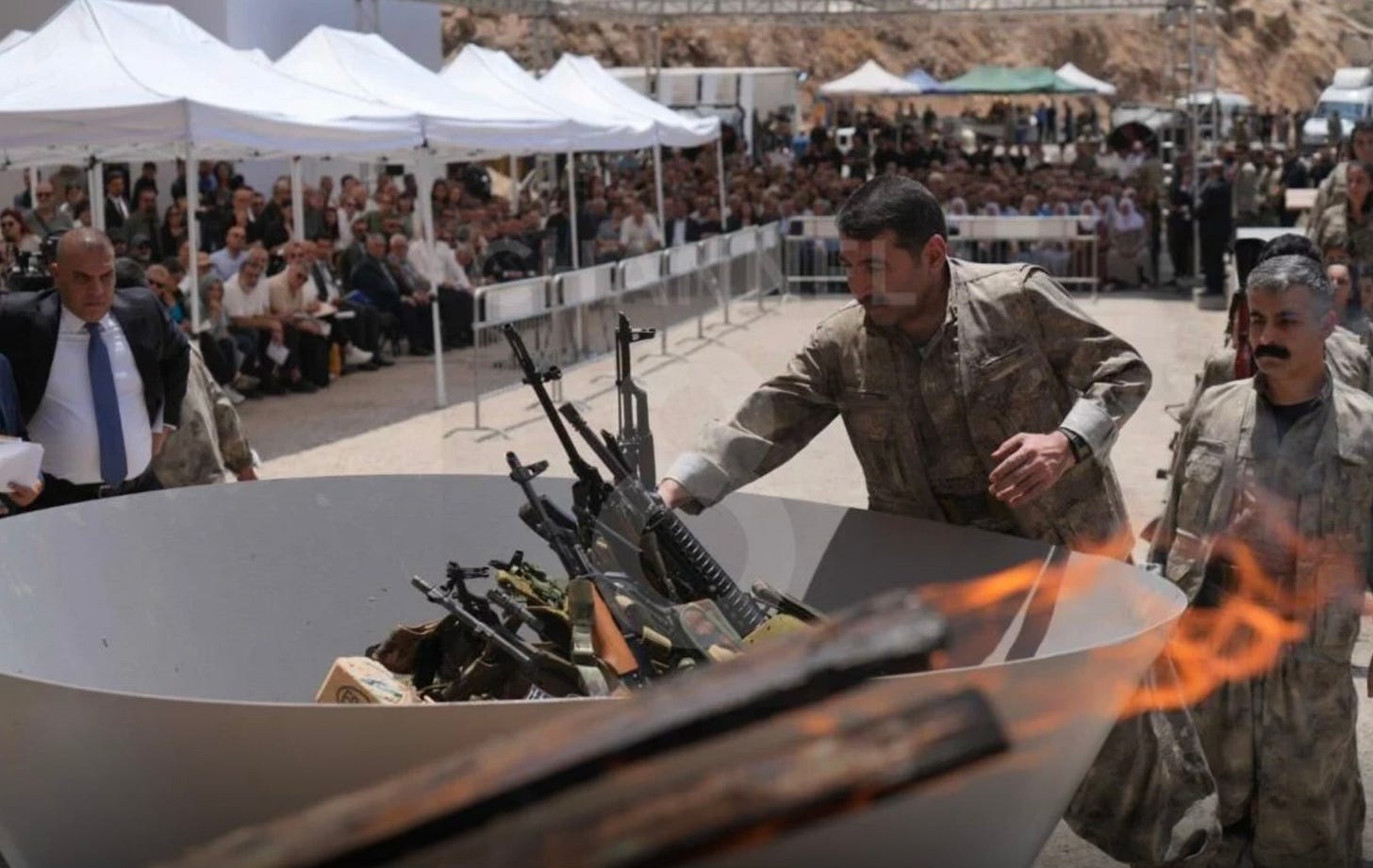A Cauldron of fire in Sulaymaniyah: Is This the End of the Kurdish Conflict?
This is an additional dispatch for this week as today marks a historic moment for Turkey, for the Kurdish movement, and for the broader Middle East.
In Sulaymaniyah, a solemn ceremony unfolded: nearly 40 PKK militants, including the senior commander Bese Hozat, appeared before a crowd of 200. They declared the end of the armed struggle but in their own words, “by our own will.” One by one, the militants approached a flaming cauldron and cast their weapons into the fire.
The symbolism was unequivocal. Burial, after all, suggests the possibility of retrieval. What is buried can be unearthed. But fire signifies finality. In other words, what burns does not come back. At least not in the same way.
So, is this really the end of the Kurdish conflict? Or just the end of one phase? Let’s walk through the key questions briefly, and clearly.



